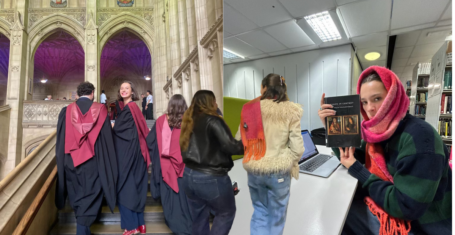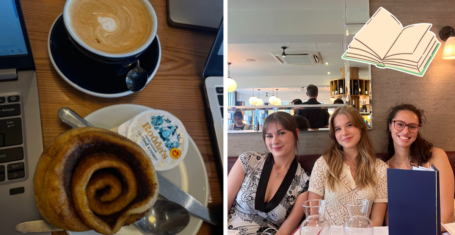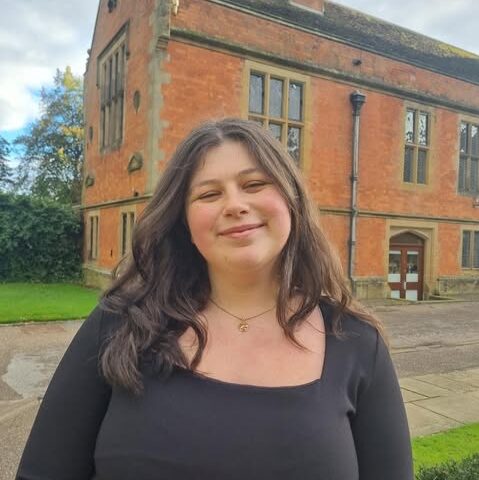
Bristol Uni’s response to far-right riots was hollow: Students deserve more than an email
‘I expected nothing more from the university, I already felt unsafe on campus during the Palestine-Israel protests’
Following the events of the past few weeks, students who have a similar background to me return to a distressing reality at university due to a fear of future violence. The response from the University of Bristol has not quelled these concerns.
Parts of England and Northern Ireland had seen a disturbing surge in far-right anti-immigration riots, with Bristol itself not spared from this wave of hatred.
These riots have torn through communities, with minorities targeted and a large number of those involved in violence given swift sentences and jail time. Whilst these decisions show a lack of tolerance for our hatred, it does not offset the fears of ethnic minority students at Bristol coming back to campus.
Bristol, often celebrated as both a diverse and inclusive hub, recently became a focal point for extremist unrest. The far-right took their anger to the streets, emboldened by a political climate which has made racism and xenophobia disturbingly mainstream.
These riots, aimed at intimidating immigrants and those who don’t “look British enough,” are not just wild reactions of anger but are fuelled by years of simmering anti-immigration rhetoric. Watching footage of non-white Britons avoiding racist mobs and being beaten has unsurprisingly alarmed people across the country. For students, especially those from Muslim backgrounds and non-English ethnicities, the sense of safety we once felt has been deeply shaken.
The University of Bristol’s response to these events has been anything but reassuring. As tensions rose and the city witnessed distressing scenes of violence and hatred, the university management’s reaction was encapsulated in a singular email – one that felt more like a formality than a real attempt to address the fear and insecurity rippling through the student body.
Most Read
In this email, they acknowledged the “distressing scenes” unfolding in the city and provided a list of resources that supposedly offer support. They mentioned that they are “monitoring the situation closely,” which for one student I had spoken to said it felt like “forced, borderline lip service.” The university concluded with “there is guidance available online on managing your personal safety” and references to a security button on the Student App.
Honestly, this is not what the student body needs or deserves. Whilst the acknowledgement is appreciated, it has been months of students from an ethnic minority background feeling unsafe on campus and around the city, with some of us truly feeling like the university does not have our interests and safety at heart. The “guidance” given has not settled us all.
My feelings are not alone and we’re also felt by a second-year student who wishes to remain anonymous who expressed how unhelpful the information was for the future, and said: “The buttons we are given will not protect us as we’re walking around the city all day and night”.
For many of us, the university’s response has been a bitter disappointment and fallen beneath the expected standard. The administration’s failure to acknowledge the specific fears faced by Muslim students and non-English British students is glaring.
Since October 7th, Tell MAMA has recorded a 335 per cent increase in anti-Muslim hate cases. The vague condemnation of “Islamophobia or any form of racism” found in the email feels hollow when it’s not backed up by concrete action to ensure our safety.
One student, who allowed herself to be identified as Arab, said that she was not surprised by the written condemnation stating that she “expected nothing more from the University, I already felt unsafe on campus during the Palestine-Israel protests.”
This sentiment has been shared between other students and me throughout the year with each other and to staff. Another second-year continued to express how she would like to “complete the rest of my education here without feeling like I’m in harm’s way due to the uni’s lukewarm, light condemnation of hateful views that can easily lead to violence as we all saw in July”.
So, what do students want from the University of Bristol’s management? It’s simple: we want more than just words.
We need a proactive response that goes beyond generic reassurances and actually addresses the fears and concerns that are keeping many of us up at night.
One student who wishes to stay unnamed said an automated email to all students is not enough: “The university should try and engage with us directly instead of giving us links to a pre-existing page that isn’t directly related to the recent issues at hand.
“The communication should also improve. A small email is not going to cut it that gives off a passive reaction to what happened. The uni should engage more with the student body, speak to staff across departments about creating forums, basically anything that they can think of that will bring good and show that they care.”
It is clear the riots have shaken our sense of security, but the reaction of the university has not given us any reason to feel secure. Students should be looking forward to eventful nights on the Triangle, not worrying about how to stay safe in case racism makes its way onto the streets again.
Professor Judith Squires (Deputy Vice-Chancellor) and Provost Lucinda Parr (Chief Operating Officer, Registrar and University Secretary) said: “Like most Bristolians, we were shocked and saddened by the criminal behaviour we witnessed in our city at the beginning of August.
“Our first priority as a university was to ensure that our staff and students were safe and knew how to access support if they needed it. This became even more important after stories began to circulate of further planned disorder in Old Market the following week which thankfully did not occur.
“We worked with our partners who manage accommodation in Old Market to ensure students were safe and enabled many staff to work from home that day, particularly those who had to travel through the affected area.
“We are proud of the way we came together as a city and as a university to support our communities. We can always do better and listen carefully to feedback.
“The actions we witnessed do not reflect our values as a University of Sanctuary. There is no place for hate, intimidation, Islamophobia, antisemitism or any form of racism in Bristol. Every member of our community deserves to feel safe and included.”














